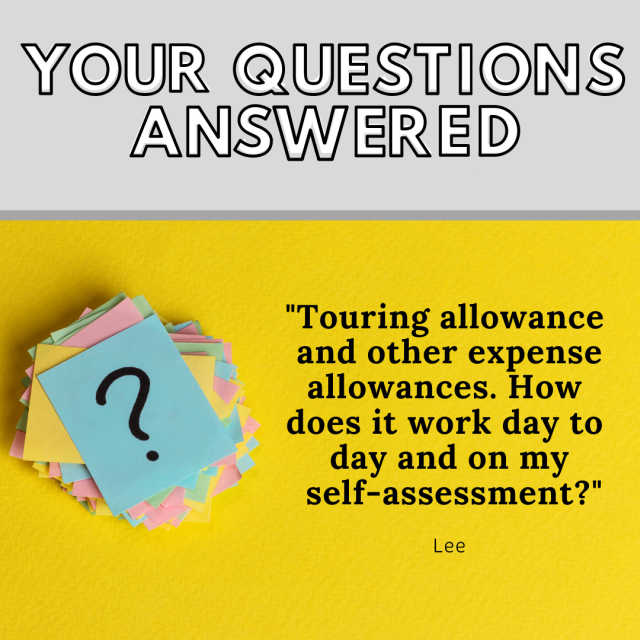Your questions answered: Touring allowance (and other expense allowances)
 We received a great question from Lee recently about his touring allowance (money he received to cover his 'expenses' whilst on tour). Sometimes it's called a per diem, meaning 'for each day' or simply referred to as 'expenses money':
We received a great question from Lee recently about his touring allowance (money he received to cover his 'expenses' whilst on tour). Sometimes it's called a per diem, meaning 'for each day' or simply referred to as 'expenses money':
When you are performing on tour in UK and you get a touring allowance each week to pay for your accommodation, how should you record the touring allowance on your self assessment?
We bet loads of you have had just this thought! Don't worry - it's simple!
Technically, you should include it all as income (your touring allowance money and your salary) and then expense only the costs that you incurred during your time on tour. This is the ideal response and the one we recommend going forward. Example: If you got £100 per week touring allowance and £500 salary, your total income would be £600. And you would 'expense' what you actually spent... say £90 on food and lodging for the week.
Income for self-assessment = Salary + Touring Allowance
Expenses for self-assessment = Actual expenses incurred on job (regardless of what the touring allowance is)
So, when completing your self-assessment tax return, follow this and you shouldn't go far wrong!
But what if you didn't record your expenses whilst you were in the contract? If you haven't, we would recommend that you include the touring allowance in your income and then have the full amount as your expenses. So £600 income and £100 expenses in the above example.
On the very small chance that HMRC were to look at your accounts, this should be satisfactory.
SansDrama is here to help YOU and everyone else in our amazing creative community. If you've found the site helpful then you can help us to keep this site free to use forever by using the SD Web App.
Love Jo and James x